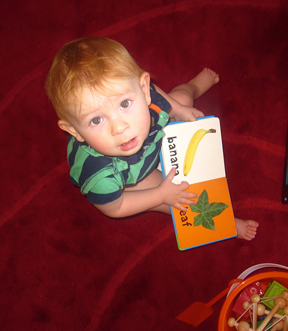 We live in a culture deeply devoted to getting its citizens to read at the earliest possible ages. Whether it’s flashcards, alphabet-focused toys, or “teachable moments about letters” sprinkled throughout daily life with toddlers and preschoolers, we seem hellbent on early reading.
We live in a culture deeply devoted to getting its citizens to read at the earliest possible ages. Whether it’s flashcards, alphabet-focused toys, or “teachable moments about letters” sprinkled throughout daily life with toddlers and preschoolers, we seem hellbent on early reading.
And parents feel little choice in the matter: sadly, a 5- or 6-year-old kindergarden student in public or conventional private school who isn’t quite fluent with letters is already behind the 8-ball.
Child psychologist David Elkind has devoted his professional life at Tufts University to studying the costs of “hurrying” children. He points out that true reading readiness only emerges once a child has attained the neuro-cognitive milestone of syllogistic reasoning (“All men are mortal; Socrates is a man; thus Socrates is mortal”), which dawns during the concrete operational stage of cognitive development.
This “con-op leap” happens around age seven, and is a biologically based milestone, just like the shedding of baby teeth or the onset of puberty. How many parents fret if their son hasn’t managed to lose his first tooth as soon as his friend did… or if their daughter at thirteen “still just has not been able to get her period”? {Read more at mothering.com}
Image by tornatore through a Creative Commons license


